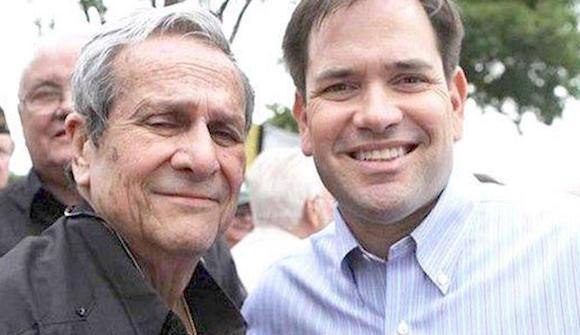By Rosa Miriam Elizalde
Marco Rubio has unleashed an aggressive campaign of falsehoods and bullying to win votes against Cuba in the United Nations General Assembly. One week before the annual vote on the blockade against Cuba, the Secretary of State has launched a diplomatic offensive to try to move the needle: not so much to garner “no” votes as to transform affirmative votes into abstentions or absences.
A State Department cable, leaked to Reuters and dated October 2, reveals the strategy: linking the resolution on the embargo to the war in Ukraine and portraying Cuba as a threat to regional peace.
The document, distributed to dozens of embassies, instructs US diplomats to pressure governments to oppose the resolution, based on the accusation that between 1,000 and 5,000 Cubans would fight alongside Russian forces. “After North Korea, Cuba would be the largest provider of foreign combatants,” the text states.
The objective is explicit: to significantly reduce affirmative votes at the UN; “no” votes are “preferred,” but abstentions or non-participation also serve a purpose. In statements to the press on Wednesday in Havana, Cuban Foreign Minister Bruno Rodríguez Parrilla showed a facsimile copy of the State Department document and stated that members of Congress of Cuban origin have sent additional letters in which, in a threatening tone, the vote is conditioned on other aspects of the bilateral relationship. Unequivocal gestures from the neighborhood thugs.
The offensive comes amid tightening sanctions following Trump’s return to the White House, who cannot tolerate the fact that last year the resolution was passed by 187 votes in favor, with the United States and Israel against, and Moldova abstaining. This precedent demonstrates the counterintuitive nature of the ongoing maneuver.
Havana’s response has been categorical: Cuba is not part of the armed conflict in Ukraine, nor is it participating with military personnel “there or in any other country.” The Ministry of Foreign Affairs published details of criminal proceedings for mercenarism related to this front: nine cases (2023-2025) against 40 defendants; eight trials and five convictions totaling 26 people, with sentences ranging from five to 14 years; three cases pending sentencing and another in progress. The Foreign Ministry maintains a “zero tolerance” policy against mercenarism, trafficking, and the participation of nationals in conflicts abroad.
Meanwhile, the Caribbean is becoming militarized under the pretext of the “war on drugs.” Washington is extrajudicially murdering crew members on board vessels, reinforcing its naval presence, and testing rules of engagement that escalate the intensity of its use of force. The campaign to blackmail governments to undermine Cuban resolve is not a separate chapter, but rather the narrative cover for this escalation, which also opportunistically embraces a diplomatic operation to divert attention from the profound suffering caused by the blockade on the Cuban people.
Confirmed as Secretary of State in January, Marco Rubio has placed Cuba at the center of his hemispheric agenda. Among his measures is the repeated use of visa restrictions against foreign officials whom he accuses of participating in the alleged “coercive labor export scheme” of Cuban medical missions. Rubio has taken every possible step to criminalize one of the island’s most recognized cooperation programs.
The Secretary of State has also amplified controversial narratives in the past—such as hypotheses about the external causes of the so-called “Havana syndrome”—that the US intelligence community deemed “highly unlikely” after interagency assessments in 2023 and 2025. The contrast between that evidence and the political rhetoric illustrates the method: loading the media climate with fallacious national security claims to weaken support for the resolution.
But historical arithmetic is stubborn. Since 1992, the General Assembly has overwhelmingly approved the call to end the embargo, and in 2024, the score was 187-2-1. With that precedent, the most likely scenario is that the resolution will again pass with a very large majority, even if Washington manages to scrape together a few abstentions or absences.
If history is any guide, the Assembly’s overwhelming pronouncement will be repeated.
(Originally published in La Jornada, Mexico)
IMAGE CREDIT: Marco Rubio (right) and Félix Rodríguez, the assassin who claims responsibility for Che Guevara’s death at La Higuera. Photo: X
[ SOURCE: CUBA DEBATE ]

